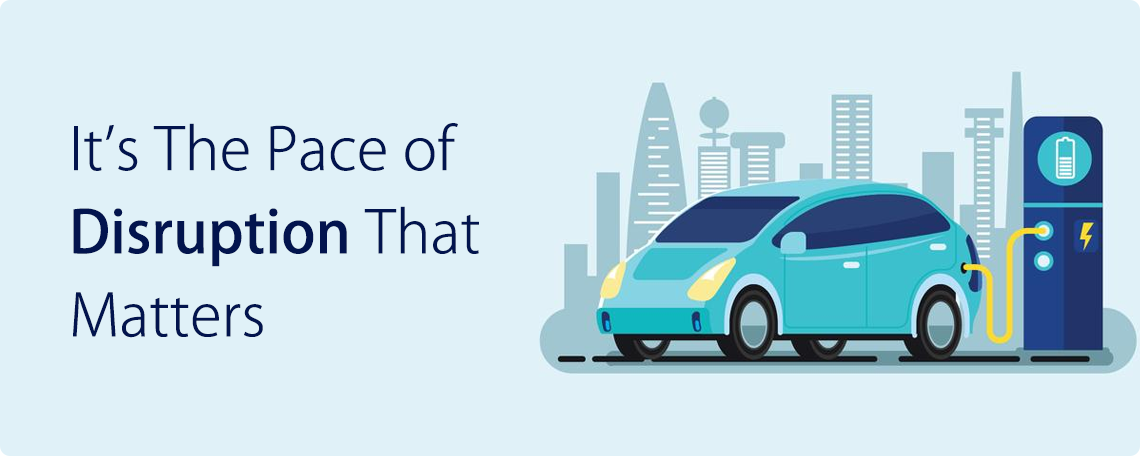It’s The Pace Of Disruption That Matters
10430 Views | January 22, 2019

We are on the cusp of the fourth industrial revolution, where disruption is once again the central theme of the capital markets. The focus on disruption has led to rising valuations for technological companies, whereas traditional sector such as automotive has taken a backseat. Over the course of centuries, it is this very disruption that has helped increase standards of living and prosperity. Disruption is also a golden opportunity for investors to seek areas which will thrive and grow.
However, while disruption can take decades, markets often price it in immediately. This ‘overreaction’ is a place for wise investors to seek value. Let’s consider the dotcom bubble in the 2000’s. This period saw stock prices of tech companies shoot up on the belief that e-commerce would change the economic landscape radically. This fact has been proven true, but it has taken about two decades for e-commerce to pick up pace. In other words, this disruption did not happen overnight.
Today, along similar lines, there is talk of change in the automotive industry and beginning of the age of electric cars. There is little doubt that environmental pressures and other economic factors will bring about a time where the internal combustion engine will eventually be phased out. We will also be correct in assuming that electric cars would achieve a high market share. The Indian government has already cut goods and services tax (GST) on electric vehicles and chargers to 5% from 12% and 18% respectively. In the Union budget, the government has provided a tax break of Rs. 1.5 lakh for buyers of electric cars. When we look at the automotive sector holistically, we can say that the future maybe grim for purveyors of traditional motor vehicles at large, but the timing of the market response is uncalled for as the shift to electric vehicles will not be immediate. Battery technology is still not mature, and the customers are used to the range that traditional combustion engine vehicles deliver. The switch to electric vehicles has not been easy in developed markets like Europe, where their market share is only 0.7%, even though there are tax incentives in place. We believe that even when electric cars takeover, the current producers, including M&M, Maruti, Hyundai, Tata Motors etc., are likely to take a large profitable share given their expertise in mass manufacturing.
We believe this technology will require infrastructure like charging stations and affordable pricing for widespread adoption. Most cars are needed for daily commutes. In this case, a disruption may only have a muted impact on profitability instantly.
When faced with new technology investors price in immediate disruption when instead they should be more careful in assessing the timeline of disruption. We believe this creates opportunity to buy businesses where investors misprice the speed at which the industry changes.


















 Continue with Google
Continue with Google